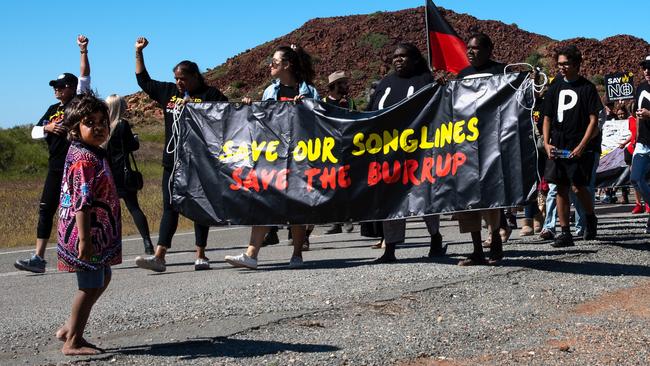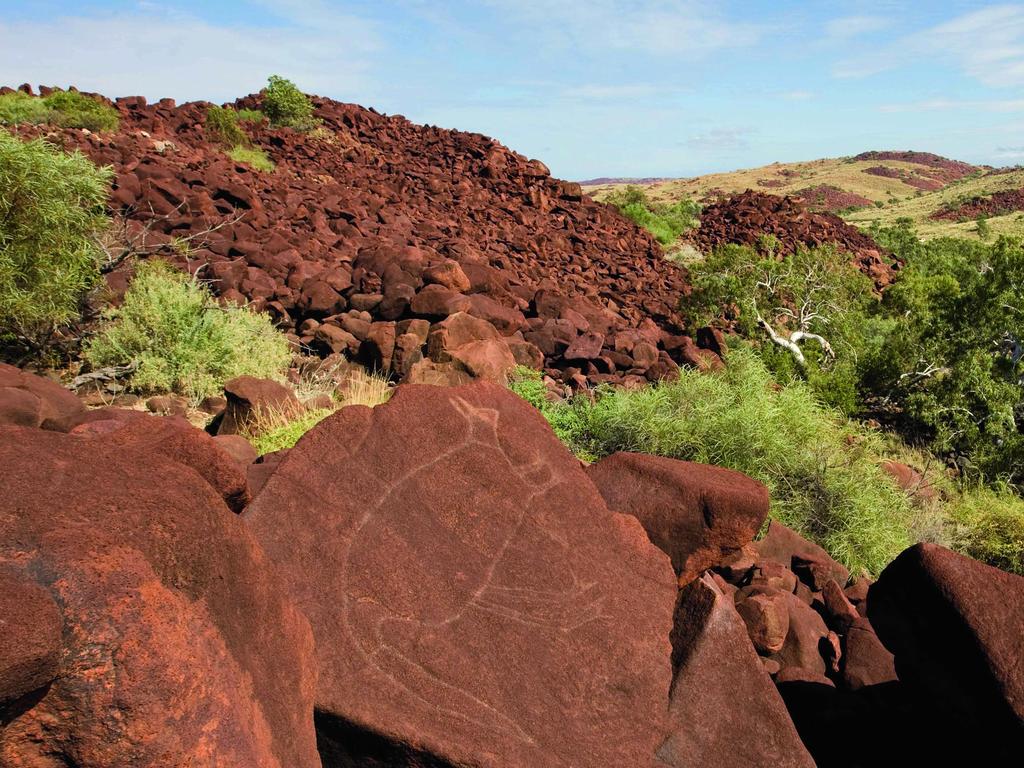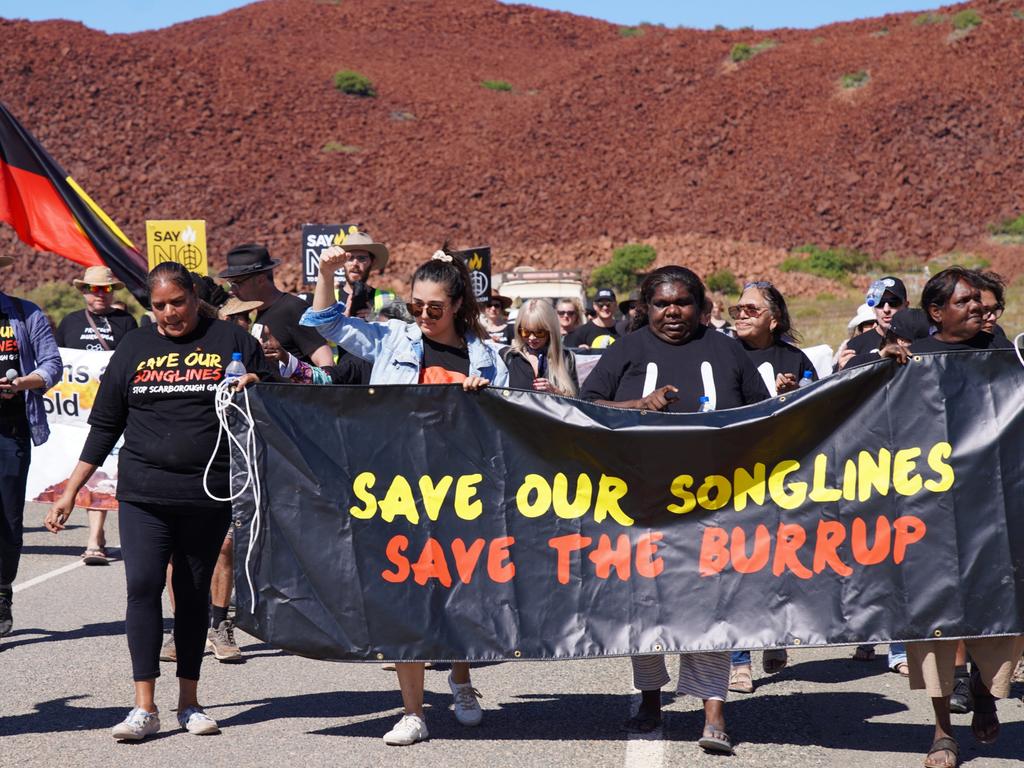‘Tear up and rewrite Burrup compact’, says traditional owner
The agreement that formalised industry access to the culturally sensitive Burrup Peninsula should be torn up and rewritten, a senior traditional owner says.

The agreement that formalised industry access to the culturally sensitive Burrup Peninsula should be torn up and rewritten in light of revelations about the unheeded concerns of the region’s key Indigenous group, a senior traditional owner says.
Raelene Cooper, a former chair of the Murujuga Aboriginal Corporation, the group established as part of the Burrup and Maitland Industrial Estates Agreement that extinguished native title claims over the area more than 20 years ago, is now one of the heads of Save Our Songlines, a breakaway Indigenous activist group that has been campaigning against several new and expanded industrial developments in the Burrup area.
Environment Minister Tanya Plibersek last week decided against granting an application from Save Our Songlines for a temporary freeze on construction works at Perdaman’s proposed $4.5bn urea plant, after MAC did not support the application.
Burrup proponents Woodside Energy and Perdaman have repeatedly highlighted their support for MAC initiatives and consultation work with the group over development plans in the region, but a letter obtained by The Australian last week showed that MAC and its circle of elders had repeatedly objected to any plan to relocate rock art and sacred sites within the proposed footprint of the Perdaman plant.
The letter described how the elders had eventually opted to support a plan to relocate the affected works only after being told there was no alternative. It also detailed what it said was the uneven playing field in negotiations between Aboriginal corporations and major projects backed by a supportive state government.
Ms Cooper said the letter was clear evidence that MAC was unable to take substantive action and stop proposals it did not support, and called for the existing BMIEA to be “burned”.
“With the BMIEA and the clauses within this agreement, it’s been really concerning because it does state that we have no objection rights, that we can’t object to this kind of behaviour or industry coming in and government stepping in to do whatever it is they want to do, and we have no say,” she said. “We’re not able to have the ability to voice our opinions or voice our concerns about protecting our cultural heritage, our ancient history.”
She said processes and expectations around Indigenous agreements had changed substantially in the decades since the BMIEA was agreed, and it would not secure approval from a modern Aboriginal body.
The major Burrup projects planned for the area, including the Perdaman plant, also won approvals under WA’s old section 18 mechanism, the same legislation that gave Rio Tinto the legal authority to proceed with the destruction of Juukan Gorge.
Legislation governing section 18 applications is now being replaced, but companies that secured section 18s over sites can still proceed win their plans.
WA Aboriginal Affairs Minister Tony Buti said in a statement Perdaman had engaged with MAC throughout the process to obtain their approvals. “MAC is the leading cultural authority and approved body corporate representing the Burrup’s five traditional owners groups, the Circle of Elders and more than 1200 members,” he said.
“A condition of the section 18 approval was the establishment of an Aboriginal Cultural Heritage Management Plan between MAC and Perdaman which details the protection and mitigation strategies of all of the Aboriginal heritage on the land.
“MAC has agreed with the relocation process of three Aboriginal sites on the land.”






To join the conversation, please log in. Don't have an account? Register
Join the conversation, you are commenting as Logout